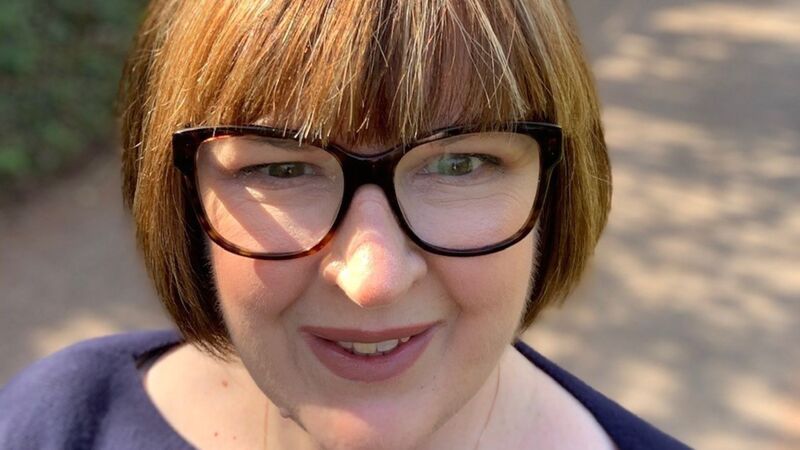You are viewing your 1 free article this month. Login to read more articles.
Progress for PRH on diversity and inclusion but company faces continuing 'challenges'
Penguin Random House UK’s latest diversity and inclusion report shows a “mixed picture” with improvements in representation of people from Black, Asian and minority ethnic backgrounds and LGBTQIA+ staff, but continuing “challenges” around disability and senior leadership representation alongside decreases in socio-economic diversity.
The report’s findings are similar to those revealed by the Publishers Association last month, which showed socio-economic background continues to represent a major barrier to inclusion and a lack of regional diversity “remains stark”.
Tom Weldon, PRH UK c.e.o. said: “We also know there are further opportunities to embed inclusivity into who and how we publish. We are proud of the progress we have made but we also recognise that we still have much to do. This will take time and we cannot do it alone.
“To tackle complex issues of inequality we need to work together and embed change across the publishing ecosystem. With all stakeholders in our industry having accelerated their own progress in this area, I hope that the next step in our combined journey will be more collaboration and shared learning. Only by doing this will we create a truly representative and equitable industry.”
PRH’s report showed that new hire representation has improved in the areas of sexual orientation and ethnicity, increasing to 22% and 32.8% compared to last year’s 10.6% and 32.2% respectively. However, disability representation has decreased to 14.7% from 15.3%. Non-selective state school-educated representation for new hires plunged 10.6% to 43.5% in 2021.
Across the company as a whole Black, Asian and minority ethnic (BAME) staff numbers increased to 17.2% from 13.3% last year, and above the UK society benchmark of 14%, based on the 2011 census. This benchmark will be updated when the results from the 2021 census are out.
Disability representation across the company also improved to 17.9% from 16.1% last year, as did the percentage of LGBTQIA+ staff, hitting 14.2% from 10.6% last year. However socio-economic representation again lagged with 49.2% of staff saying they went to a non-selective state school, down 3.2% on the year before. The Social Mobility Commission’s best practice measure, which asks staff the socio-economic occupations of their parents when they were 14 years old, also shows PRH behind, with 19.8% of staff from these backgrounds compared to a UK benchmark of 39%.
The data is most stark when looking at those in senior leadership positions where 37.2% went to a non-selective state school and 35.7% went to an independent or fee-paying school. Just 15.3% of senior leaders had parents from a lower socio-economic background when they were 14 years old. Representation from BAME staff also decreased at this level to 4.2% in 2021 from 4.8% the year before.
However, a sense of "belonging" at the company has increased across the board, with 90% saying they feel they belong in their team compared to 78.9% last year. PRH noted that while the level of belonging for BAME, LGBTQIA+, state-school educated, and disabled staff improved, it “is not yet equal to belonging levels for groups of white, heterosexual, privately educated, and non-disabled" staff.
PRH said one of the ways it is seeking to improve its socio-economic representation is by creating a new network on inclusion in this area. It is also continuing with its other diversity programmes such as The Scheme, a positive action scheme for people from BAME and lower socio-economic backgrounds to enter the workforce, and its commissioning editor traineeship Next Editors, for people from BAME backgrounds to develop the skills and expertise required for a role as a commissioning editor.
PRH has also “overhauled” its approach to recruitment so that all roles are now advertised internally, with pay information added to job adverts to improve transparency. Diverse interview slates have also been introduced and the publisher has become a "Disability Confident Employer", offering an interview to all disabled candidates who meet the essential criteria for a role. There is likewise a tailored adjustment plan to ensure disabled staff have the support and adjustments they need to thrive at work.
Elsewhere the Lit in Colour scheme has gathered pace donating more than 98,000 books by writers of colour to secondary schools across the UK and signing up new partners, including Bloomsbury. Dr Halima Begum, c.e.o of the race equality think tank The Runnymede Trust, which works with PRH on the scheme, said it was "inspiring" to see PRH’s work on diversity and inclusion "being placed at the heart of its operations". She said: "Cumulatively, the work being done by PRH is transformative. Judging by the response to Lit in Colour, from both teachers and parents, I have no doubt their scaffolded approach to diversity and inclusion will sustain itself and bring about long-term change, not just across the company but in terms of the public’s ability to access great literature that is truly representative of the pool of writing talent out there."
The publisher has also promised to deliver two consumer workshops on accessibility and engaging Black communities through media and will partially fund Inklusion research and its guide into making literary events accessible for disabled people. There will likewise be training for editors on working with sensitivity readers and more help for authors to manage social media and online abuse, offering enhanced welfare support.
Last year saw PRH build on its staff data, expanding its pay gap reporting to include disability, sexual orientation and socio-economic background. It has also released author and illustrator data, showing that representation of LGBTQIA+ and questioning authors and illustrators is almost 10 times greater than UK society. Representation of BAME individuals also increased to 32.3% from 13.8% last year. However only 30.3% of authors and illustrators shared their data, compared to 35% last year, which PRH says “makes it difficult to draw meaningful conclusions”.
PRH noted that the data it does have indicates it is “not on track” to meet goals on representation of socio-economic diversity and disability and long-term conditions representation, with 24.3% of authors and illustrators attending private school compared to 7.5% of the UK’s general population and 8.4% identifying as disabled, compared to 19% of UK society.
Authors and illustrators currently receive an optional non-attributable survey at point of contract signing. PRH hopes to improve by encouraging greater author and illustrator participation to improve response rates and will seek to begin capturing freelance data too.



















